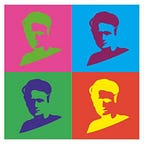Disability activism in academia — Whose fight is it?
by Nicole Brown
Activism in higher education is full of tensions, but disability activism is even more fraught because of issues of definition and scope. As a result, activist work becomes disparate, which, in turn, leads to the masses turning away from what is an important cause. This blog post outlines some key concerns and recommendations for a way forward.
Ableism is an umbrella term describing the discrimination and prejudice against disabled people in favour of able-bodied people. Ableism in academia is pervasive. Afraid of potential repercussions, discrimination, and retribution, many scholars and scientists do not disclose their disabilities, chronic illnesses, and neurodivergence. Consequently, there has been a significant increase in activist work to raise awareness and foster empathy and understanding on the topic, to ultimately make academia more inclusive and equitable.
However, activism in higher education is not straightforward, as it involves navigating many intricacies. Here, I highlight some of these concerns before offering practical recommendations for dealing with them.
Challenges with definitions, language, and terminology
A common issue regarding disability, chronic illness, and neurodivergence relates to definitions. In higher education, definitions often rely on the medical or legal frameworks of what makes someone disabled, and, for many scholars, this social model — the idea that society disables an individual — is the more appropriate and meaningful way to explain and define the disability experience.
Yet, this does not consider an individual’s personal experiences and feelings. Some people are not comfortable with the medical or legal definition because they are chronically ill rather than disabled, or they adopt a more affirmative model of disability, according to which disability is an identity to be proud of.
Not only that but if the use of language and terminology is usually challenging, it is fundamentally problematic in the field of disability activism. Words often include connotations and, therefore, express underlying attitudes, to which individuals, in turn, react in different ways.
Underpinning disability activism in higher education
The issues with definitions, language, and terminology point towards a much broader concern when it comes to disability activism in higher education: philosophical and disciplinary frameworks. Depending on disciplinary conventions, disability activism takes many forms. For example, it may be about raising awareness and developing spaces and opportunities for disabled scholars to feel comfortable disclosing their needs. It may call for the dismantling of our patriarchal society to ensure complete equality under all circumstances. Or it can be positioned anywhere in between these two extremes.
All of this leads to disagreement among disability activists in higher education: for some, raising awareness is not enough, and for others, smashing patriarchal structures is too radical or unrealistic. Some would like to shock and provoke, others would like to educate and reason.
In short, just like the disabled, chronically ill, and neurodivergent are not a homogenous group, there are differences in opinions and experiences among disability activists. The consequence of this disparity is significant, as the in-fighting can cause antipathy among the wider public, which might lead to a decrease in engagement with the cause for the greater good.
Actions for disability activists
To avoid activism becoming stunted, here are some recommendations for disability activists from someone whose ableism work sits at the centre of teaching, research, and activism:
- Come together! There is strength in numbers. If there are too many fractions and subgroups among disability activism, the affected population is small and can easily be ignored. But if we all pull together, it will be much harder to ignore equity and equality issues.
- Remember the focus. We all want the same thing: disability equity and equality.
- Listen to each other. Find a way to overcome each other’s different perspectives, disciplinary conventions, and philosophical frameworks.
- Lean on each other. Reap the benefits of all approaches to activism.
References
- Brown, N. (2020a). Introduction: Theorising ableism in academia. In: Brown, N. & Leigh, J. (eds.). Ableism in Academia: Theorising Experiences of Disabilities and Chronic Illnesses in Higher Education. London: UCL Press. 1–10.
- Brown, N. (2020b). Disclosure in academia: A sensitive issue. . In: Brown, N. & Leigh, J. (eds.). Ableism in Academia: Theorising Experiences of Disabilities and Chronic Illnesses in Higher Education. London: UCL Press. 51–73.
- Shakespeare, T., & Watson, N. (2001). The social model of disability: an outdated ideology?. In Exploring theories and expanding methodologies: Where we are and where we need to go. Emerald Group Publishing Limited.
- Swain, J., & French, S. (2000). Towards an affirmation model of disability. Disability & society, 15(4), 569–582.
- Wendell, S. (2001). Unhealthy disabled: Treating chronic illnesses as disabilities. Hypatia, 16(4), 17–33.
- Wolbring, G. (2008). The politics of ableism. Development, 51(2), 252–258.
About the author:
Nicole Brown is a writer, social researcher, and associate professor working on the cusp of research, practice, and teaching. Nicole’s creative pieces and research relate to representations of experiences, the generation of knowledge, and research methods and approaches to explore the same. Her publications include the books Making the Most of Your Research Journal, Embodied Inquiry: Research Methods, Lived Experiences of Ableism in Academia: Strategies for Inclusion in Higher Education, Ableism in Academia: Theorising Experiences of Disabilities and Chronic Illnesses in Higher Education, Photovoice Reimagined and Creativity in Education: International Perspectives, and her next book is Exceptionally Able. Nicole shares her work at https://www.nicole-brown.co.uk, and her social media handles are @ncjbrown and @AbleismAcademia.
